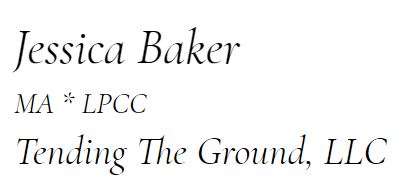It is a radical act of grace to withhold judging ourselves.
To truthfully and honestly not berate ourselves, for anything, and be willing to bring generosity and grace, is a hall pass for all the negligent, egregious, or even sabotaging acts we commit to ourselves. To, ourselves.
It is challenging to offer real significance to this world when we jump onto the bandwagon of scapegoating those who appear to be sinking, so that we can happily stay afloat. This is an energetic tendency to manage anxiety and survive through belonging, by outcasting. It operates by excluding, denying, or looking down upon another. Outcasting works to aggrandize ourselves.
It works, but at the significant price of colossal internal and external division, that is spoken about being witnessed today. It also promotes the unspoken fear of being cast out, caught out in a mistake, and publicly humiliated. With the proliferation of social media outlets, these occurrences are becoming more commonplace. This does not breed creativity, safety and novel ideas to come forth. How did we get here? How do we return to the place of supporting each other, especially when we are down trodden? And how do we maintain our individuality and still be apart of the whole?
In essence, I’m saying, how do we get to “we”?
“We” is the grace of feeling apart of it all. It is including ourselves in all of it: the problems, the joy, the sharing of the whole thing. “We” is made. “We” is the dialogue.
It is intentionally formed upon the framework of having such a deep connection to ourselves, that we cannot help but spill out willingness: to really listen, to be more interested in connecting than being right; to try another way. It is to acknowledge in some way – “I didn’t get it before. I didn’t understand you, but now I do.” There is a new seeing that occurs. And, we get to have this new seeing, at any time, even if it has been billions of years that we couldn’t see, but now we do. That’s okay. To be willing to say to ourselves, “I’m okay as I am,” without shame.
And from that lens, to be willing to offer that acceptance, grace and dignity to others around us is then the gift from that internal and individual healing. “We” are all okay too, additionally, and this is important to recognize, because of the seductive need and pull (a seeming shortcut) that belonging through outcasting presents to us.
This connection to ourselves begins with being in our own heart in the times of our own greatest internal suffering, while legitimately saying to ourselves, “I’m here, what do you need?” And meaning it, we must mean it; our heart knows if we don’t mean it. When we encounter our own tender hurt in this way, we might feel like we’re collapsing, but actually, we are emptying in order to be able to fill much wider, and fill with the unadulterated love that becomes available, that we so desperately seek (by conjuring the desire to outcast in the first place).
To be curious, instead of persecuting, includes lessening the usefulness of category and meaning-making. It doesn’t mean we all agree. It actually means we are allowed to disagree with each other. Allowing disagreement is an act of radical kindness, maturity, and freedom, as it is at least a conversation; a beginning.
So, instead of outcasting ourselves for our misdemeanors, if we can comfort all of the sordid monsters inside us, all of our bleak and humiliated memories, all the ways we continually make a mess of things, then we are experiencing real love, in real time, and not waiting to find it somewhere else. It is not the love that gets ratings, “likes,” preferential treatment, or one-upmanship, it is so much bigger and smaller than that.
It is the simple, old fashioned and genuine caring for the world within us, which becomes the same as the world outside of us. There is an arousal of benevolence, for no particular reason, just simply because it is available.


Recent Comments